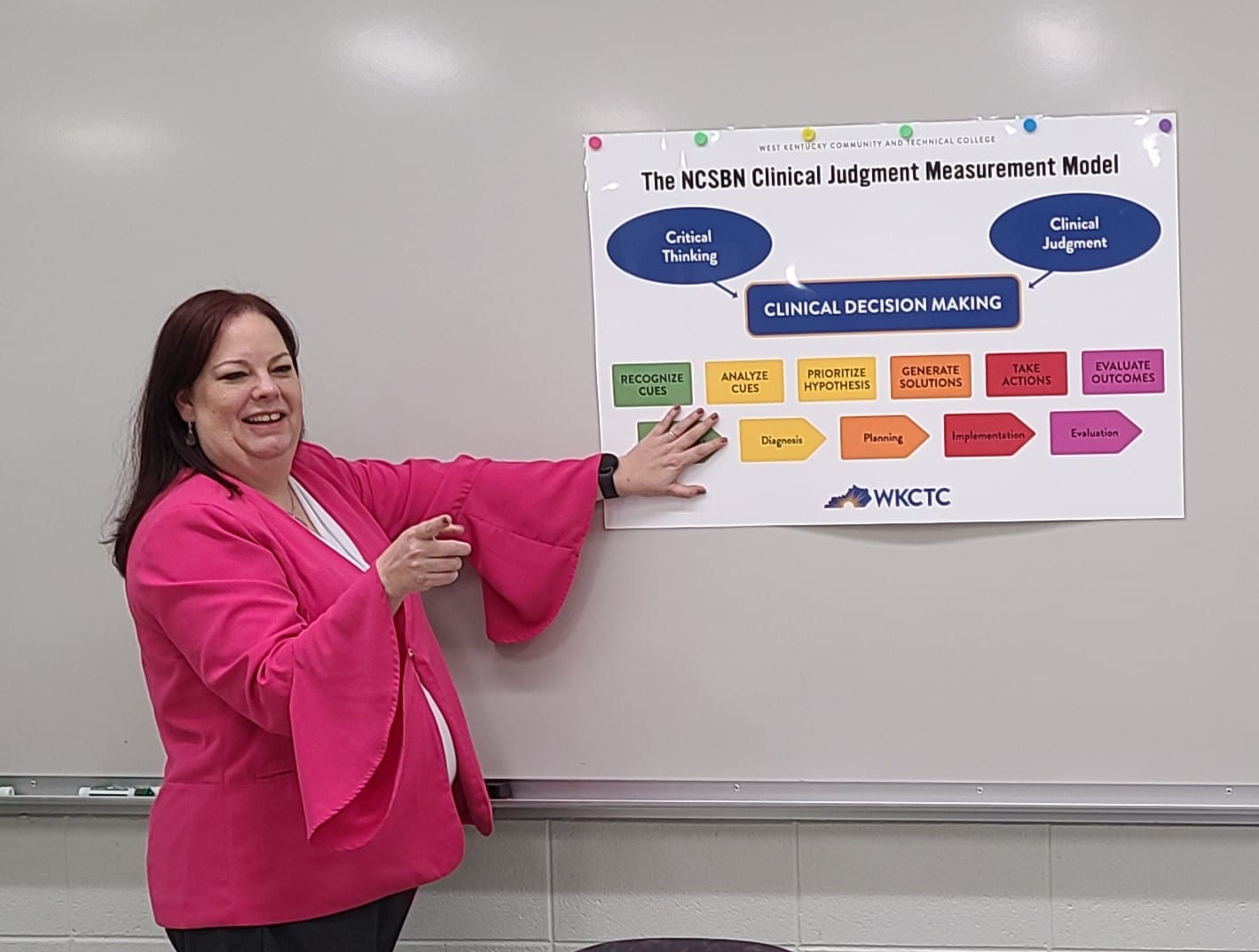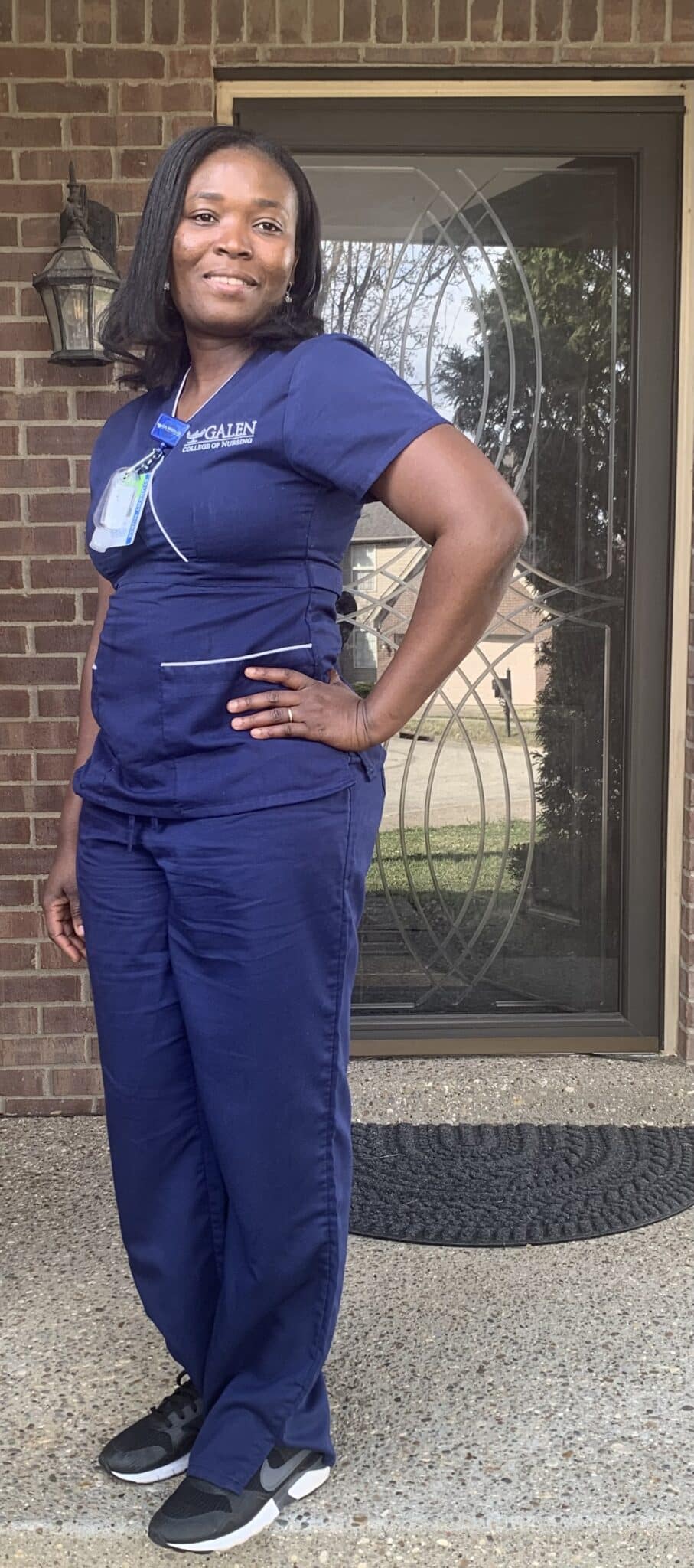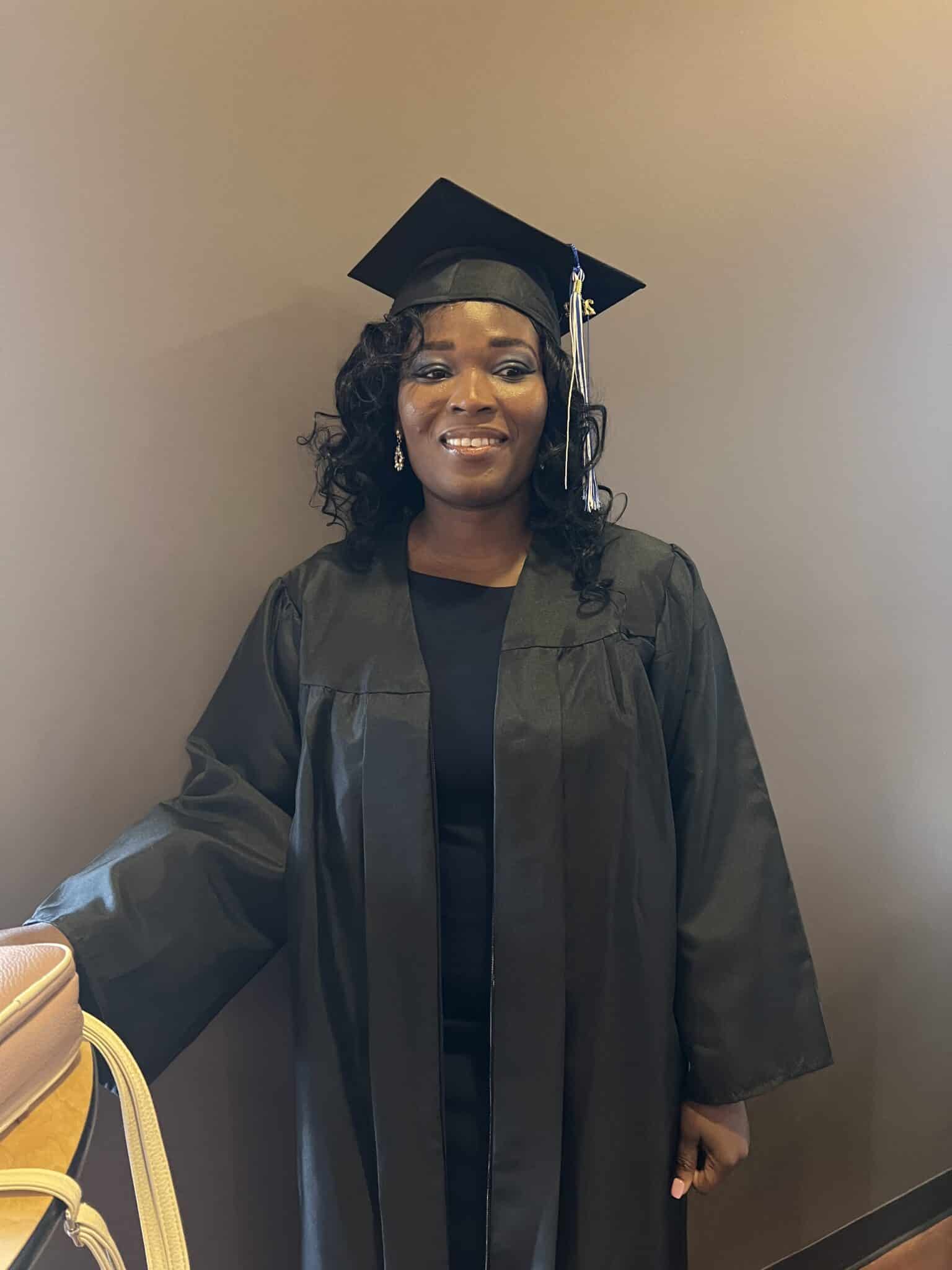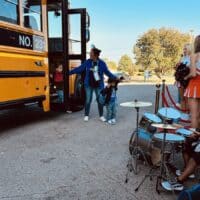LOUISVILLE – Adelaide Quaye-Mansell always liked caring for people, so becoming a nurse was her “passion” goal. Adelaide Quaye-Mansell graduated from Galen College of Nursing in 2022. She passed her national exam in 2023 after taking KCTCS’s free prep course.

In fact, when she was 15 back in Ghana, before moving to the United States, she helped nurse her bedridden uncle back to health.
She cooked for him and gave him medicine. She was in awe as she watched him recover.
“I love to care about … when people are sick,” the Louisville woman, 42, said. “I feel like I need to help them.”

Quaye-Mansell enrolled in Galen College of Nursing’s Louisville campus in 2020.
But the COVID-19 pandemic that interrupted other prospective nurses’ education hurt her too, she said. Her entire nursing education was during a public health crisis that restricted in-person learning opportunities.
“Most of our clinical hours (were) done on Zoom,” Quaye-Mansell said. So when she graduated in 2022, she couldn’t immediately pass the international standard exam and get the coveted RN behind her name.
Not until, that is, a year later when she attended a free prep course through the Kentucky Community and Technical College System.
She blames COVID-19 for the delay.
The free prep course
Vanessa Lyons, the LPN to RN Bridge Coordinator at West Kentucky Community and Technical College in Paducah, said the free prep course Quaye-Mansell and others attended was birthed out of a desire to get more nurses in the state.
Kentucky — and the nation — have a well-documented nursing shortage, exacerbated by COVID-19 burnout and an aging worker population.
Mass shutdowns and restrictions stunted the normal education trajectory for Kentucky’s next generation of nurses.
“Students, as a result of the pandemic, had less access to clinical facilities, less time in those clinical settings,” Lyons said. “That’s a very important component for students’ success: to be able to link what they’re learning in the classroom to real world nursing.”
On top of that, many nursing students work in the health-care field while in school, meaning they were doubly impacted by the pandemic — both in the classroom and in the field.
“So the stressors of mandatory overtime and short shifts and exposure to COVID and all of those stressors that health-care workers were experiencing, our students were also experiencing,” said Lyons.
That made it difficult to officially become a registered nurse post graduation. Nursing graduates must pass the National Council Licensure Examination (NCLEX) to prove they can safely practice nursing.
The exam tests “critical thinking skills using information students learned in their registered nursing or vocational nursing school,” according to nurse.org. “The goal of the NCLEX is to ensure that graduates can make quality nursing judgments and provide safe patient care.”
To qualify for the free prep course through the Kentucky Community and Technical College System, which stretched from the first week of January to late March, students had to have failed the NCLEX twice.
Throughout their course, they took assessment tests, reviewed content, and strategized on how to approach studies and the exam.
Quaye-Mansel took the NCLEX twice in 2022 — in June and September. She didn’t pass either time, and said she felt alone during that time.
“When you come out of school (it’s) like you’re on your own,” she said. “So you have to figure out how to study to pass the test.”
She planned to take the exam a third time in January when she received an email from KCTCS in December telling her she qualified for the free prep course.
For three months, the course was her life. Eight hours a day, she studied for the NCLEX.
“It’s a full time job,” she said. “The workload is very overwhelming.” But Lyons and others in the program coached her through her studies and helped her strategize the test. She had a support system.
“With this program … you have everybody around at least one once a week. You get your teachers if you have any problems,” she said. “You go through some case study, you ask questions and it just helps you to do best in everything that you’re doing. So the program was helpful.”
She took the NCLEX in late March for the third time.
She passed.
How successful was the program?
Twenty-five Kentuckians — most of whom were from Louisville and Lexington — enrolled in the course. KCTCS reached out to those whom the Kentucky Board of Nursing identified as not having passed the NCLEX yet. There was no application process.
Of those who enrolled in the course, three were unable to take the exam. Ten passed the NCLEX after the prep course.
“We’re really excited with that outcome,” Lyons said.

And while she knows getting more nurses over the exam hurdle is important for the state’s workforce, she said, she also wants to help Kentuckians feel more fulfilled.
“These are people who have put forth the time and effort and money into a nursing program and have not been able to see that payoff yet,” Lyons said. “And many of these students have barriers where they’re from low income, difficult family life. And passing that licensure exam is their ticket to a better life.”
She’s going to volunteer her time this summer to keep working with those who didn’t pass, she said.
KCTCS officials say the plan now is to start the next prep course round in late summer.
‘We’ll be here forever’
Quaye-Mansel has lived in Kentucky for about 15 years now and plans to stay here with her husband and three children.
She will work as a nurse in the commonwealth, doing what she loves while helping to address the nursing shortage.
She likes Kentucky because it’s family oriented, she said, and peaceful.
It’s quiet compared to other places she’s lived, she said. “We’ll be here forever.”
This article is republished under a Creative Commons license from Kentucky Lantern, which is part of States Newsroom, a network of news bureaus supported by grants and a coalition of donors as a 501c(3) public charity. Kentucky Lantern maintains editorial independence. Contact Editor Jamie Lucke for questions: info@kentuckylantern.com. Follow Kentucky Lantern on Facebook and Twitter.
Sarah Ladd is a Louisville-based journalist and Kentuckian. She has covered everything from crime to higher education. In 2020, she started reporting on the COVID-19 pandemic and has covered health ever since.






